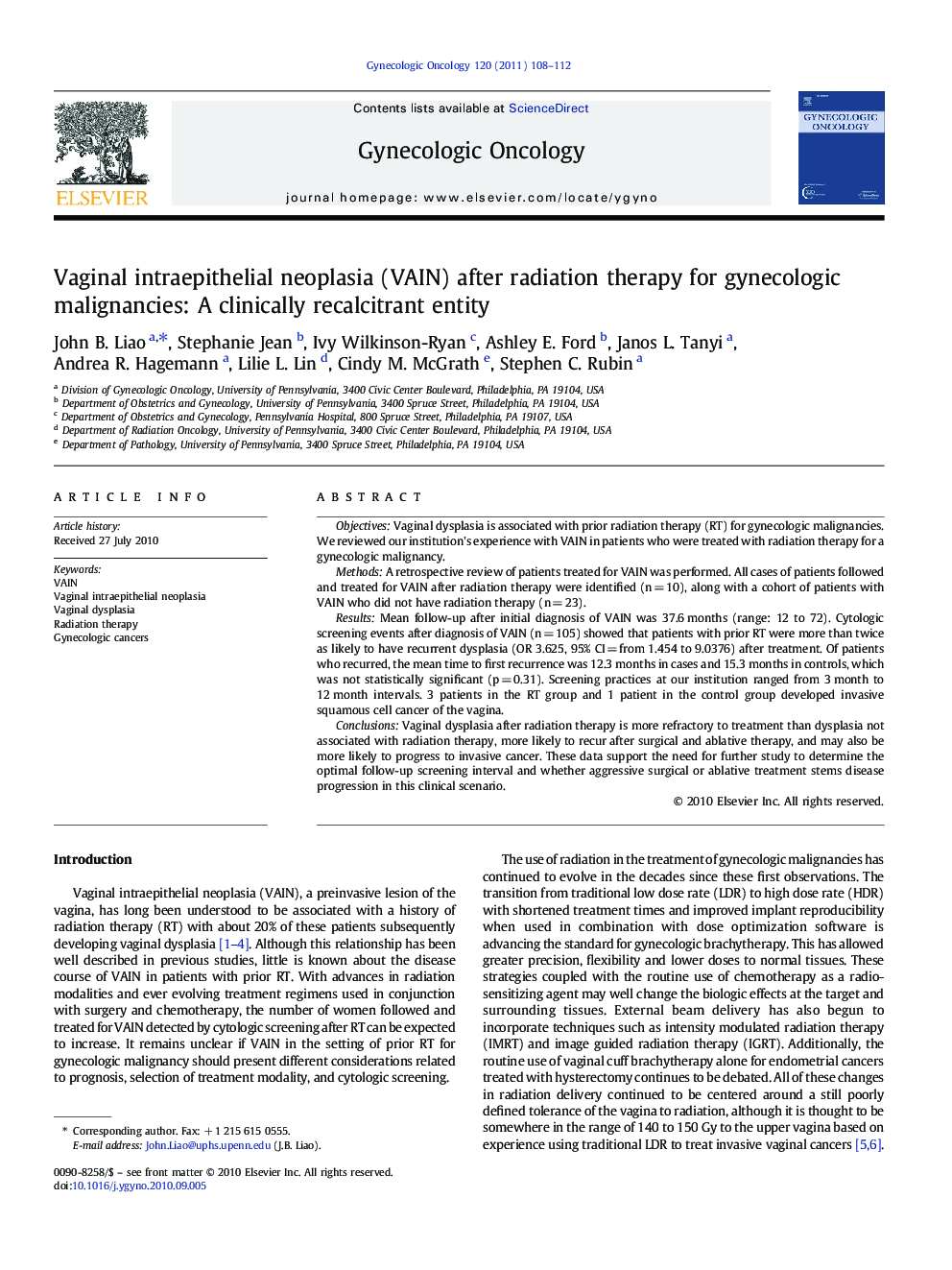| کد مقاله | کد نشریه | سال انتشار | مقاله انگلیسی | نسخه تمام متن |
|---|---|---|---|---|
| 3947189 | 1254416 | 2011 | 5 صفحه PDF | دانلود رایگان |

ObjectivesVaginal dysplasia is associated with prior radiation therapy (RT) for gynecologic malignancies. We reviewed our institution's experience with VAIN in patients who were treated with radiation therapy for a gynecologic malignancy.MethodsA retrospective review of patients treated for VAIN was performed. All cases of patients followed and treated for VAIN after radiation therapy were identified (n = 10), along with a cohort of patients with VAIN who did not have radiation therapy (n = 23).ResultsMean follow-up after initial diagnosis of VAIN was 37.6 months (range: 12 to 72). Cytologic screening events after diagnosis of VAIN (n = 105) showed that patients with prior RT were more than twice as likely to have recurrent dysplasia (OR 3.625, 95% CI = from 1.454 to 9.0376) after treatment. Of patients who recurred, the mean time to first recurrence was 12.3 months in cases and 15.3 months in controls, which was not statistically significant (p = 0.31). Screening practices at our institution ranged from 3 month to 12 month intervals. 3 patients in the RT group and 1 patient in the control group developed invasive squamous cell cancer of the vagina.ConclusionsVaginal dysplasia after radiation therapy is more refractory to treatment than dysplasia not associated with radiation therapy, more likely to recur after surgical and ablative therapy, and may also be more likely to progress to invasive cancer. These data support the need for further study to determine the optimal follow-up screening interval and whether aggressive surgical or ablative treatment stems disease progression in this clinical scenario.
Research Highlights
► VAIN after radiation therapy is more refractory to treatment, with these patients being more than twice as likely to develop recurrent disease.
► Neither surgical excision nor ablation had an advantage in decreasing recurrent disease.
► Patients developing VAIN after radiation therapy may be at greater risk for developing invasive cancer of the vagina.
Journal: Gynecologic Oncology - Volume 120, Issue 1, January 2011, Pages 108–112